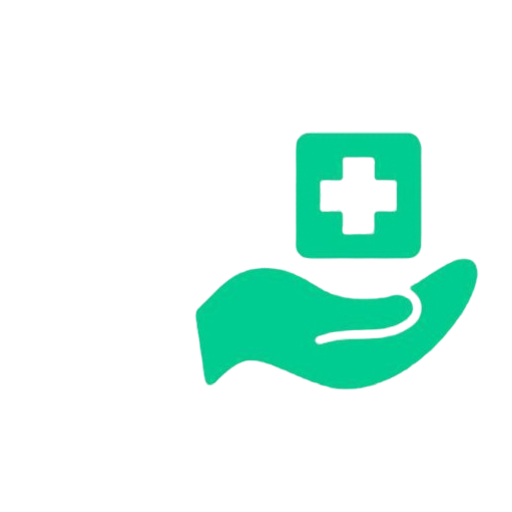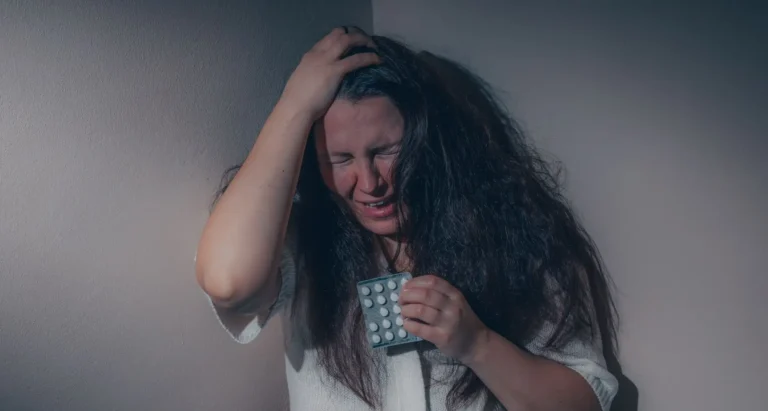Major Depressive Disorder (MDD), commonly referred to as clinical depression, stands as one of the most prevalent mental health conditions globally. Its impact on individuals’ daily lives, relationships, and overall well-being is profound. As we are going to explore, “Is Major Depressive Disorder (MDD) a Disability?” it’s essential to understand both the clinical definition and the broader societal implications. Mental health experts stress the significance of recognizing MDD as a legitimate condition that can substantially impair an individual’s ability to function in various aspects of life.
Let’s explore the complexities surrounding this issue and gain insights into the perspectives shaping our understanding of MDD as a potential disability.
Is Major Depressive Disorder a Disability?
From a medical standpoint, MDD is recognized as a serious mental health condition characterized by persistent feelings of sadness, hopelessness, and a loss of interest in activities once enjoyed. The severity of symptoms can vary greatly among individuals, ranging from mild to severe.
For some, MDD can significantly impair their ability to carry out daily tasks, maintain employment, or engage in social interactions. As such, mental health professionals often advocate for understanding MDD as a disabling condition that warrants support and accommodations.
However, the classification of MDD as a disability under legal frameworks such as the Americans with Disabilities Act (ADA) or Social Security Administration (SSA) criteria involves specific criteria and documentation requirements. Additionally, societal attitudes and perceptions towards mental health can influence whether individuals with MDD receive the recognition and support they need.
Therefore, the question of whether MDD constitutes a disability requires careful examination of medical, legal, and societal factors to provide a comprehensive answer.
Medical Perspectives and Treatment Options
Understanding Major Depressive Disorder (MDD) from a medical viewpoints is crucial for effective diagnosis and treatment. Here, we delve into the diagnostic process, tools utilized, nursing assessments, and the prevalence of MDD diagnoses.
How Do Doctors and Nurses Diagnose Major Depressive Disorder?
Diagnosing Major Depressive Disorder (MDD) is primarily done through a thorough evaluation by a doctor or mental health professional.
Evaluation:
- Conversation: This is the most crucial part. The doctor will ask you detailed questions about your symptoms, including their severity and duration. They’ll want to understand your mood, thoughts, behaviors, sleep patterns, appetite changes, and energy levels.
- Mental Status Examination: This assesses your overall mental state, including speech patterns, emotional expression, and how clearly you think.
- Background Information: The doctor will inquire about your medical history, family history of mental health conditions, and any substance use.
Criteria:
- Doctors rely on the criteria outlined in the Diagnostic and Statistical Manual of Mental Disorders, Fifth Edition (DSM-5) for diagnosis.
- To be diagnosed with MDD, you must experience at least five symptoms from a specific list for at least two weeks, with at least one of the symptoms being depressed mood or loss of interest/pleasure.
Ruling Out Other Causes:
- A doctor may recommend blood tests to rule out any underlying medical conditions that could be causing similar symptoms.
- They will also want to differentiate MDD from other mental health conditions like bipolar disorder.
What are the Diagnostic Tools for Major Depressive Disorder?
Alongside a clinical evaluation, doctors use various diagnostic tools to diagnose Major Depressive Disorder (MDD). These tools help assess the presence and severity of symptoms.
- Patient Health Questionnaire (PHQ): This is a widely used self-administered screening tool. It comes in two versions – PHQ-2 is a brief 2-question version for initial screening, and PHQ-9 is a more comprehensive 9-question version that assesses the severity of depression symptoms.
- Beck Depression Inventory (BDI): This is another popular self-report inventory that measures the severity of depression symptoms. It consists of 21 multiple-choice questions that assess various aspects of depression, including mood, thoughts, behavior, and physical symptoms.
- Hamilton Rating Scale for Depression (HRSD): This is a clinician-administered tool where a doctor interviews the patient and assigns scores based on their observations of symptoms like mood, thoughts, behaviors, and physical symptoms.
- Center for Epidemiologic Studies Depression Scale (CES-D): This 20-item self-report scale measures depressive symptoms experienced over the past week.
- Zung Self-Rating Depression Scale (SDS): This is a short, 24-item self-administered questionnaire that measures the level of depression.
How Does a Nurse Assess for Depression?
Nurses play a vital role in assessing and addressing depression within healthcare settings. Through empathetic communication and active listening, nurses establish rapport with patients to encourage open dialogue about their emotional well-being.
They utilize screening tools like the PHQ-9 to screen for depressive symptoms during routine assessments. Furthermore, nurses observe non-verbal cues and changes in behavior that may indicate underlying depression.
Collaborating with interdisciplinary teams, nurses advocate for comprehensive care plans that address both physical and mental health needs, ensuring holistic support for individuals with Major Depressive Disorder.
What is the Diagnosis Rate of Major Depressive Disorder?
Major Depressive Disorder (MDD) is a prevalent mental health condition, with diagnosis rates varying across populations and settings. According to the World Health Organization (WHO), MDD affects approximately 264 million people worldwide.
However, diagnosis rates may be influenced by factors such as cultural attitudes towards mental health, access to healthcare services, and stigma surrounding mental illness. Despite efforts to increase awareness and destigmatize seeking help for depression, many individuals with MDD remain undiagnosed or untreated.
Enhancing mental health literacy, improving access to screening and treatment services, and fostering supportive environments are essential steps toward addressing the underdiagnosis of MDD and promoting early intervention and recovery.
What if I Feel Depressed and Anxious?
Experiencing feelings of depression and anxiety can be overwhelming, but it’s essential to know that support and resources are available to help navigate these challenges. If you find yourself struggling with depression and anxiety, reaching out for assistance is a proactive step toward improving your well-being.
Seek professional help: Consult with a healthcare provider or mental health professional who can offer guidance and support tailored to your needs.
Talk to someone you trust: Sharing your feelings with a trusted friend, family member, or support group can provide emotional relief and perspective.
Practice self-care: Engage in activities that promote relaxation and self-soothing, such as mindfulness exercises, physical activity, or creative pursuits.
Prioritize healthy habits: Maintain a balanced diet, get regular exercise, prioritize sleep, and limit substances like alcohol and caffeine, which can exacerbate symptoms.
Explore therapy options: Consider therapy modalities such as cognitive-behavioral therapy (CBT), interpersonal therapy (IPT), or mindfulness-based approaches, which can help manage symptoms and develop coping strategies.
Educate yourself: Learn more about depression and anxiety to better understand your experiences and available treatment options.
Build a support network: Surround yourself with understanding and supportive individuals who can offer encouragement and empathy during difficult times.
Be patient with yourself: Recovery from depression and anxiety is a gradual process, so be kind and compassionate towards yourself as you navigate this journey.
What Separates MDD from Bipolar Disorder?
Distinguishing between Major Depressive Disorder (MDD) and Bipolar Disorder involves understanding the unique patterns of mood episodes exhibited in each condition. While both involve periods of depression, Bipolar Disorder also includes manic or hypomanic episodes, setting it apart from MDD. Accurate diagnosis relies on careful assessment of mood fluctuations and their duration.
Is bipolar and MDD the same?
Bipolar Disorder and Major Depressive Disorder (MDD) are distinct mood disorders with different symptom presentations. While both involve depressive episodes characterized by feelings of sadness, hopelessness, and loss of interest, Bipolar Disorder also encompasses manic or hypomanic episodes, which MDD does not.
These manic or hypomanic episodes are marked by elevated mood, increased energy, and impulsivity, distinguishing Bipolar Disorder from MDD.
Can bipolar be mistaken as MDD?
Bipolar Disorder can sometimes be mistaken for Major Depressive Disorder (MDD), particularly during depressive episodes when manic or hypomanic symptoms may not be readily apparent. This misdiagnosis can occur if individuals seek help during depressive phases without a history of manic or hypomanic episodes.
However, accurate diagnosis is crucial, as treatment approaches differ between Bipolar Disorder and MDD, necessitating distinct interventions to manage mood fluctuations effectively.
MDD VS Bipolar Disorder
| Feature | Major Depressive Disorder (MDD) | Bipolar Disorder |
| Mood Episodes | Depressive episodes only | Depressive and manic/hypomanic episodes |
| Manic or Hypomanic Episodes | Absent | Present |
| Duration of Episodes | Variable, but typically longer depressive episodes | Mood episodes tend to alternate |
| Treatment Approach | Antidepressants, therapy | Mood stabilizers, antidepressants, therapy |
| Risk of Suicide | Elevated during depressive episodes | Elevated during depressive and manic episodes |
The Impact of MDD on Work and Employment
Major Depressive Disorder (MDD) can significantly impact an individual’s ability to maintain employment and thrive in the workplace. The debilitating symptoms of MDD, such as persistent sadness, fatigue, and difficulty concentrating, can interfere with job performance, productivity, and attendance.
Moreover, individuals with MDD may struggle with motivation, decision-making, and interpersonal relationships at work, further exacerbating challenges. The stigma surrounding mental health issues in the workplace may also contribute to feelings of isolation and reluctance to seek support or accommodations.
Recognizing the profound impact of MDD on work and employment is essential for fostering understanding, promoting supportive environments, and implementing strategies to accommodate individuals’ needs effectively.
Can Major Depression Cause Psychosis?
Major depression can sometimes lead to psychotic symptoms. When someone experiences psychosis in the context of major depression, it’s often referred to as “psychotic depression” or “major depressive disorder with psychotic features.” Psychotic symptoms may include hallucinations (seeing or hearing things that aren’t there) or delusions (strongly held false beliefs).
These symptoms can significantly impact a person’s perception of reality and may exacerbate the severity of their depressive episode. It’s essential for individuals experiencing psychotic symptoms during depression to seek prompt medical attention, as treatment strategies may differ from those used for non-psychotic depression.
Treatment typically involves a combination of medication, such as antidepressants and antipsychotics, along with therapy and support to address both the depressive symptoms and the psychosis.
Ending Note
Major Depressive Disorder (MDD) presents complex challenges that extend beyond individual experiences to impact various facets of life, including work, relationships, and mental well-being. By fostering understanding, promoting early intervention, and prioritizing holistic care, we can work towards creating environments that support individuals affected by MDD in their journey towards recovery and improved quality of life.







